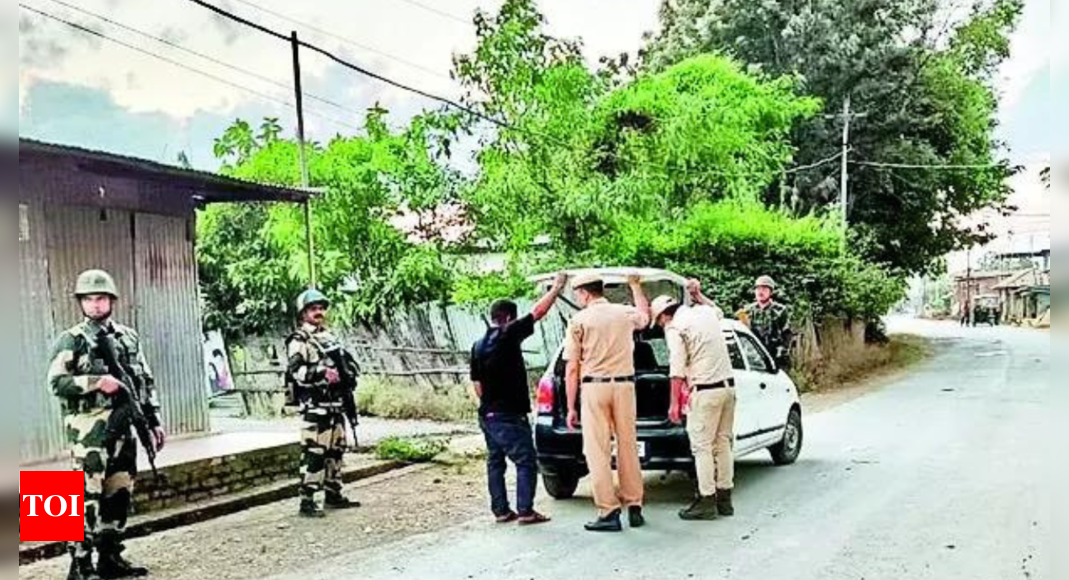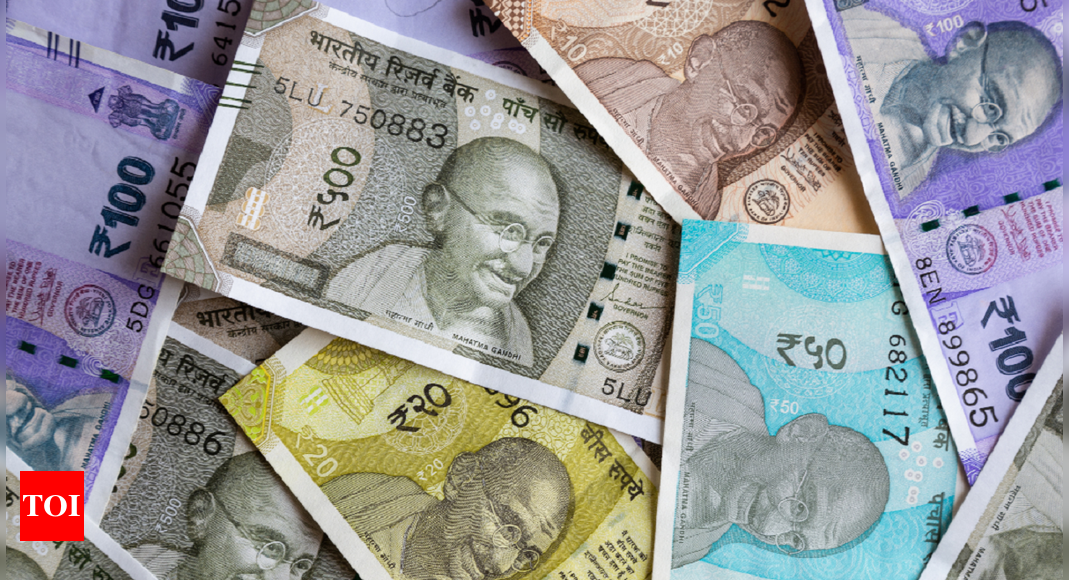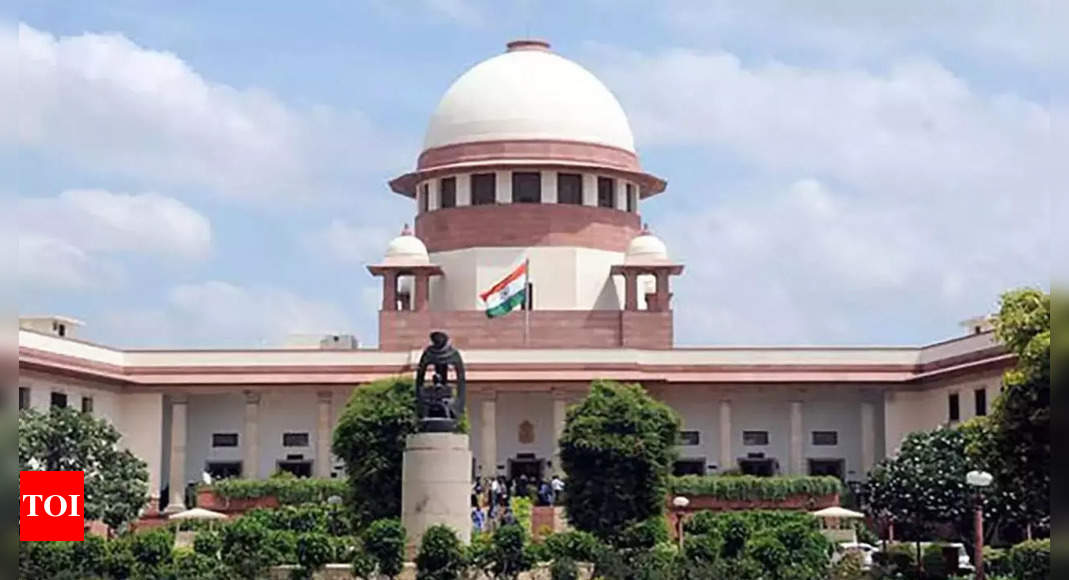
PARIS: France was on course for a hung parliament in Sunday’s , with a leftist alliance unexpectedly taking the top spot ahead of the far-right, in a huge upset that was set to bar Marine Le Pen‘s National Rally from running the govt. The outcome, if confirmed, will leave parliament divided in three big groups with very different platforms and no tradition at all of working together.
The New Popular Front, which gathers the hard left, the Socialists and Greens, who have long been at odds with each other, was forecast to win between 172 and 215 seats out of 577, as per pollsters’ projections based on early results from a sample of poll stations.These projections are usually reliable.
Cries of joy and tears of relief broke out at the leftist alliance’s gathering in Paris when the estimates were announced. At the Greens’ office, activists screamed in joy, embracing each other. By contrast there was stunned silence, clenched jaws and tears at the far-right party headquarters, as young National Rally (RN) members checked their phones.
The result would in any case be humiliating for Macron, whose centrist alliance, which he founded to underpin his first presidential run in 2017, was projected to be narrowly second and win 150-180 seats. But it will also be a major disappointment for Marine Le Pen’s nationalist, eurosceptic National Rally. The RN, which had for weeks been projected to win the election, was seen getting 115 to 155 seats.
Voters have punished Macron and his alliance for a cost of living crisis and failing public services, as well as over immigration and security. Le Pen and her party tapped into those grievances, spreading their appeal way beyond their traditional strongholds along the Mediterranean coast and in the country’s northern rust belt.
But the left-wing alliance managed to edge them out of the first spot. That was in part thanks to some limited cooperation by Macron’s centrist Together alliance and the left, designed to block the far right’s ascent to power. Le Pen’s rivals pulled more than 200 candidates out of three-way races in the second round in a bid to create a unified anti-RN vote. Prominent leftist Jean-Luc Melenchon called the projections an “immense relief for a majority of people in our country” and he demanded the resignation of PM Gabriel Attal.
The projections, if confirmed by official counts expected later Sunday or early Monday, plunge a pillar of the European Union and its second-largest economy into intense uncertainty, with no clarity about who might partner with Macron as PM in governing France. France now faces the prospect of weeks of political machinations to determine who will be PM and lead the National Assembly. The timing of France’s leap into political unknown could hardly be worse: With the Paris Olympics opening in less than three weeks, the country will be grappling with domestic instability when the eyes of the world are upon it.
Any cobbled-together majority risks being fragile, vulnerable to no-confidence votes that could cause it to fall. Prolonged instability could increase suggestions from his opponents that Macron should cut short his second and last term. The constitution prevents him from dissolving parliament again in the next 12 months, barring that as a route to possibly give France greater clarity.
By 5pm (three hours before polls were to close), 61.4% of voters had turned out – the most at this stage of a legislative race since 1981. The overall turnout is on track to be the highest in four decades. Reuters & AP
The New Popular Front, which gathers the hard left, the Socialists and Greens, who have long been at odds with each other, was forecast to win between 172 and 215 seats out of 577, as per pollsters’ projections based on early results from a sample of poll stations.These projections are usually reliable.
Cries of joy and tears of relief broke out at the leftist alliance’s gathering in Paris when the estimates were announced. At the Greens’ office, activists screamed in joy, embracing each other. By contrast there was stunned silence, clenched jaws and tears at the far-right party headquarters, as young National Rally (RN) members checked their phones.
The result would in any case be humiliating for Macron, whose centrist alliance, which he founded to underpin his first presidential run in 2017, was projected to be narrowly second and win 150-180 seats. But it will also be a major disappointment for Marine Le Pen’s nationalist, eurosceptic National Rally. The RN, which had for weeks been projected to win the election, was seen getting 115 to 155 seats.
Voters have punished Macron and his alliance for a cost of living crisis and failing public services, as well as over immigration and security. Le Pen and her party tapped into those grievances, spreading their appeal way beyond their traditional strongholds along the Mediterranean coast and in the country’s northern rust belt.
But the left-wing alliance managed to edge them out of the first spot. That was in part thanks to some limited cooperation by Macron’s centrist Together alliance and the left, designed to block the far right’s ascent to power. Le Pen’s rivals pulled more than 200 candidates out of three-way races in the second round in a bid to create a unified anti-RN vote. Prominent leftist Jean-Luc Melenchon called the projections an “immense relief for a majority of people in our country” and he demanded the resignation of PM Gabriel Attal.
The projections, if confirmed by official counts expected later Sunday or early Monday, plunge a pillar of the European Union and its second-largest economy into intense uncertainty, with no clarity about who might partner with Macron as PM in governing France. France now faces the prospect of weeks of political machinations to determine who will be PM and lead the National Assembly. The timing of France’s leap into political unknown could hardly be worse: With the Paris Olympics opening in less than three weeks, the country will be grappling with domestic instability when the eyes of the world are upon it.
Any cobbled-together majority risks being fragile, vulnerable to no-confidence votes that could cause it to fall. Prolonged instability could increase suggestions from his opponents that Macron should cut short his second and last term. The constitution prevents him from dissolving parliament again in the next 12 months, barring that as a route to possibly give France greater clarity.
By 5pm (three hours before polls were to close), 61.4% of voters had turned out – the most at this stage of a legislative race since 1981. The overall turnout is on track to be the highest in four decades. Reuters & AP









